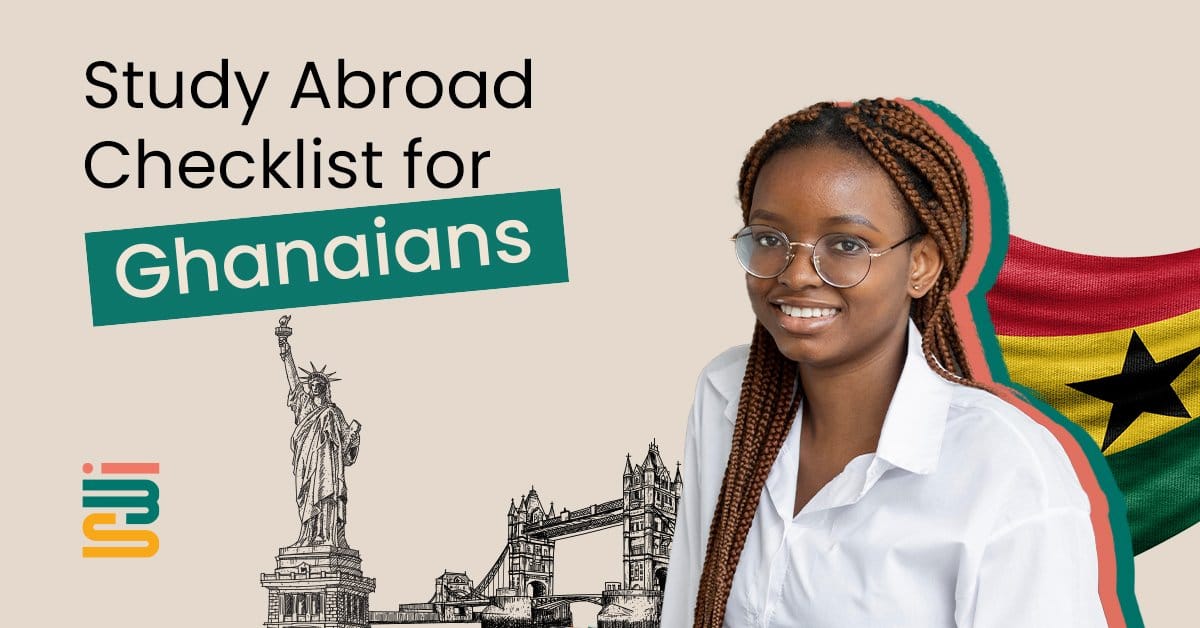Here comes the ultimate guide to your study abroad checklist for Ghanaians! Whether you want a list of study abroad checklist, or general advice on how to prepare to study abroad, you’ve found the right place! We’ve got your study abroad checklist covered!
It’s vital to think about your study abroad checklist whether you’re planning to study abroad for a month, a semester, an entire academic year or a full degree.
At IBS, we created the ultimate packing checklist that has all the essentials you need to pack in your suitcase that will help make your time abroad run as smoothly as possible.
Read on for our study abroad checklist essentials…
Read Also: Universities In Canada for masters with low GPA
Passport
The first thing on our study abroad checklist for Ghanaians is possessing a valid passport.
Your passport is the ticket to your dream study abroad destination, you know that of course! . But what you may need to ensure in the run-up to your study abroad program is whether your passport will remain valid for the duration of your travels or not.
A lot of countries in their visa applications require you to have at least six months extra on your passport beyond the end of your studies.
If there’s any need to renew your passport, make sure you apply as soon as possible to avoid being without a passport. Processing times differ from country to country but can often take six weeks or more.
If you wait until you’re abroad before renewing your passport, the stress will be more than usual. You’ll have to face embassy visits, queuing for long and even more forms to fill than usual.
Read Also: Universities that accept low GPA for masters in USA
Student Visa
Securing your student visa is an essential study abroad checklist, after you have met all the university offer conditions. Some countries require you to procure a student visa in order to be allowed in the country for the full length of study.
If you are applying for an undergraduate degree at an accredited university, the school will assist with the student visa process, although, this varies from one country to another. If there is no assistance, start working on obtaining your student visa yourself.
To achieve this, you need to contact the embassy or consulate in Ghana. You may need to attend an appointment as part of your student visa application. At your appointment, you’ll be asked to bring documentation such as a university letter of approval, the aforementioned valid passport, your proof of funds, and, occasionally, a return ticket for your journey home at the end your studies.
Student visa applications in Ghana can take up to 3–4 weeks, so make sure you’ve already got them before you leave. However, when you urgently need a student visa, you can apply for a priority visa that can be issued within 2–3 working days.
Read Also: Fully funded MBA programs for Ghanaian students
Finance
Considering your finances is another thing in your study abroad checklist. You need to ensure you have money that is safe and accessible for the duration of your studies.
Keeping a budget is one of the best things you can do to avoid being broke at the end of each term.
Ensure you have enough currency with you before leaving, because you don’t always have access to the currency of your destination. However, it is not advisable you carry more money than needed. Do not withdraw large amounts of cash at a time.
Also, open a bank account which you can access abroad with a cash card or credit card, through local ATMs or an international bank branch. Make sure your card is valid for the duration of your trip and that you let your bank know about your travels before leaving to make sure your card does not get blocked.
As you plan to depart for your studies abroad, make a list of expenses, ranging from accommodation costs to daily food and transportation. Figure out how much money you’ll have to spend weekly and, if this isn’t enough, consider cutting down on non-essentials or finding further funding options.
If you are concerned about financing your studies abroad, you may want to consider looking at the scholarships for international students to find out whether you are eligible to receive additional funding for your studies.
Accommodation
In our study abroad checklist for Ghanaians, accommodation is another top essential to plan for. Students can choose between two types of accommodation abroad: on-campus or off-campus accommodation. The cost of on-campus housing could be a bit higher than the cost of off-campus housing. Although, it makes you closer to your classmates, and you won’t have to spend much money on your movements. Off-campus accommodation may offer you privacy, independence and more freedom, if you like to explore.
We advise you weigh the pros and cons of both options and go for the one that is most suitable and convenient for you.If you choose to live on campus, we advise that you apply for it early since campus accommodations fill up so fast.
Read Also: Study Digital marketing abroad
International Student Identity Card (ISIC)
Another essential for every Ghanaian’s study abroad checklist is the ISIC. It enables you to have access to discounts in public transport, travel insurance, international calling cards and a number of other useful things such as phone repairs and tours.
The organization that issues this card has offices in 106 countries worldwide and can offer help with many travel-related issues you may face as an international student.
Read Also: Engineering courses in the USA
Travel insurance
Travel insurance is essential in your study abroad checklist. It primarily safeguards students against unforeseen situations like lost luggage, accidents or medical emergencies. .
Getting travel insurance for your long stay overseas is a helpful way to give yourself and your family members peace of mind while you’re in a foreign country.
Travel insurance will cover you if anything happens to you during your studies! In many countries, health insurance is also a requirement for international students, and you may be asked to prove you have sufficient cover.
Medicals/Health Insurance
To ensure you’re medically fit before leaving home, it’s wise to visit your doctor for a full medical check-up and to make sure you’ve had all the important vaccinations for your chosen study destination.
Health insurance on the other hand, serves as a safety net for you during your time in the country you travel to. Try to have valid health insurance that will cover you while abroad.
Coverage areas should include: major medical, evacuation, and repatriation. Carry your insurance card with you at all times during your stay.
Read Also: Tech programs abroad
Language
Taking a lesson in the local language of your study destination is important, if you are going to a country that hardly speak English or just a little bit of English.
This language lesson will help you to fully interact with the citizens and immerse yourself in their culture.
You can use language learning apps like duolingo, if you prefer the “teach yourself” method of learning a language. This app offers comprehensive language learning methods for you to pick up at your convenient time. It is a blend of listening, speaking and writing to help you develop a more rounded knowledge to better communicate and understand your new environment.
Read Also: Requirements to study nursing In UK for international students
Essential documents
As you pack your study abroad checklist, keep essential documents in a file holder and put them in your hand luggage. These may include offer letters, CAS (Confirmation of Acceptance for Studies) housing details, scholarship documents, deposits receipts and proof of fund. These documents are the top important things on your pre-departure checklist.
You can make a copy of your passport/visa/important documents and place the copies in a separate folder just in case.
Read Also: Requirements to study nursing In Canada for International Students
Clothes
The weather of your study destination determines the clothes you plan for. Prepare clothes for different weather and seasons for your time abroad.
Electronics
Pack your laptop, tablet, phone and whatever else you need in your study abroad checklist. Nowadays, students heavily rely on various electronic devices in their personal and academic lives daily. When packing for studying abroad, carry in your luggage electronics that can function internationally and can be allowed to fly with you.
Don’t forget to grab a couple of power adapters, too. Every country has its own kind of power outlet and adapter, and there’s a good chance your home chargers won’t work in your destination. You don’t want to run out of power with your electronics!
Read Also: Public Health Programs Abroad for Ghanaians
Medications
We advise you prepare some meds, pain relief, stomach medicine or any non-over-the-counter meds you might need. Ensure you ask your doctor for prescriptions for every medications you carry.
No prohibited items
Avoid traveling with prohibited items, such as food, drugs, electrical equipment, liquids, etc. Always check both your suitcases and hand luggage for prohibited items to avoid being prosecuted.
What to pack in checked luggage?
- A photocopy of your passport and essential documents.
- Toiletries, like contact lenses and solutions, feminine products, razors and shaving products
- Power strip/plug board – allows you to plug in multiple devices
- Any books/ materials you want to bring for your studies.
- Appropriate clothes for the seasons.
Program Contacts
Last but not least, it’s helpful to have access to all your program contacts. This includes names, phone numbers, street address of your study center.
It’s advisable that the street address is written in the local language for uber or in case you miss your way.
You can save the details on your phone and on a hard copy somewhere.
Read Also: Requirements to study nursing In USA for international students
CONCLUSION
We hope you find this study abroad checklist for Ghanaians helpful! Now that you know what to bring, start planning your travels!
For personalized support, reach us to us today to lessen your stress!



